Hard Ground
16 May - 14 Oct 2024
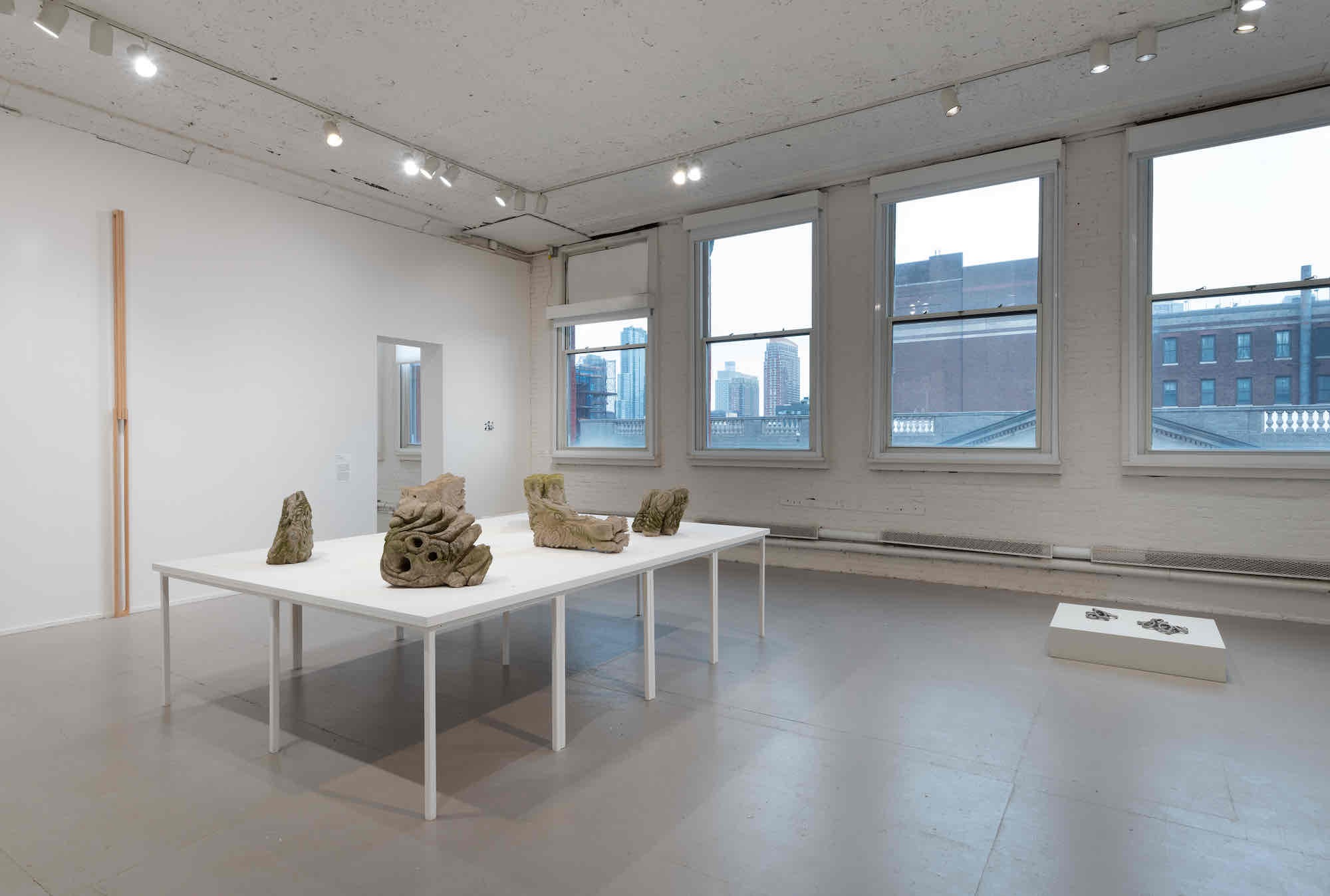
Installation view of Hard Ground, on view at MoMA PS1 from May 16 through October 14, 2024. Photo: Adam Reich
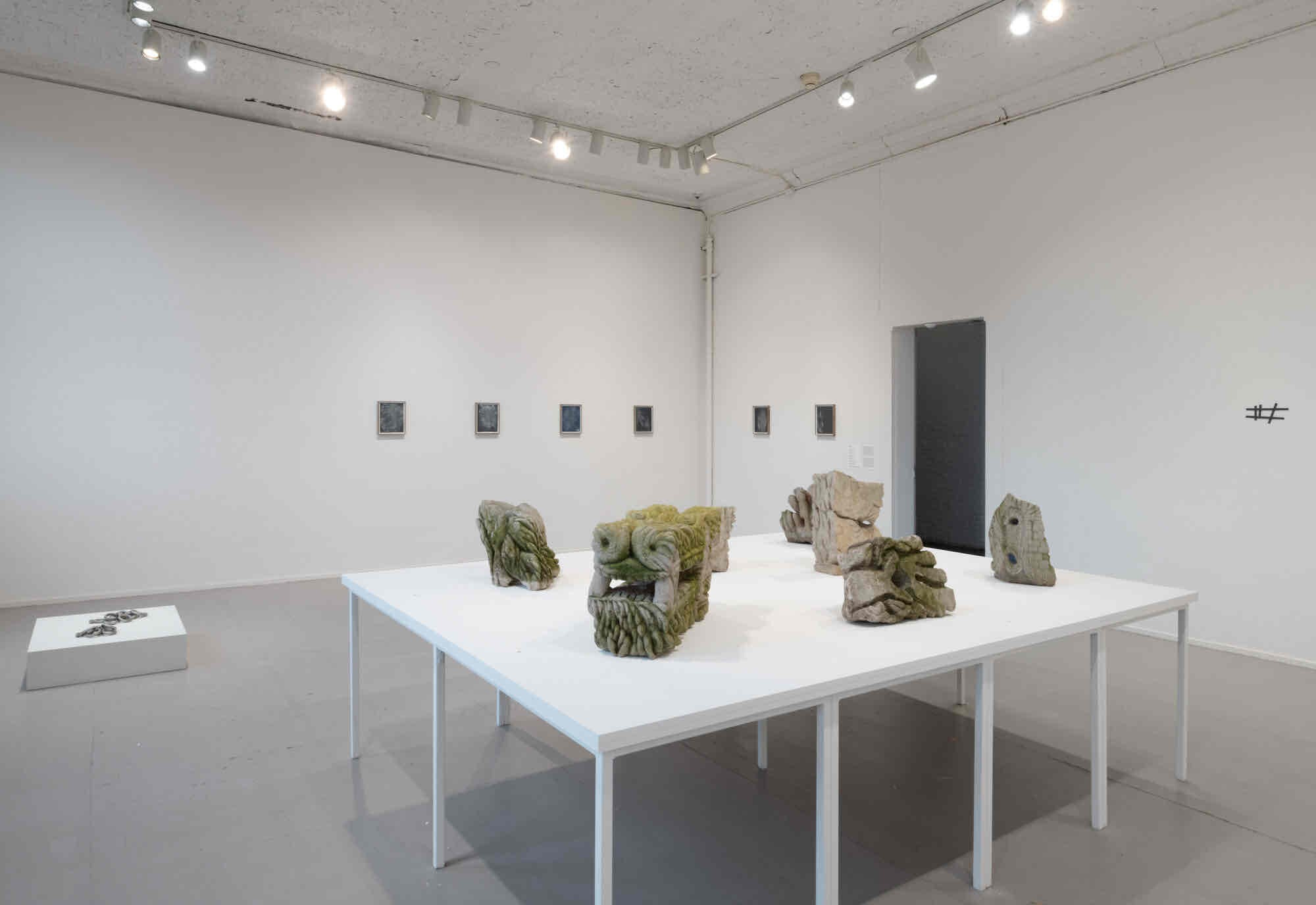
Installation view of Hard Ground, on view at MoMA PS1 from May 16 through October 14, 2024. Photo: Adam Reich
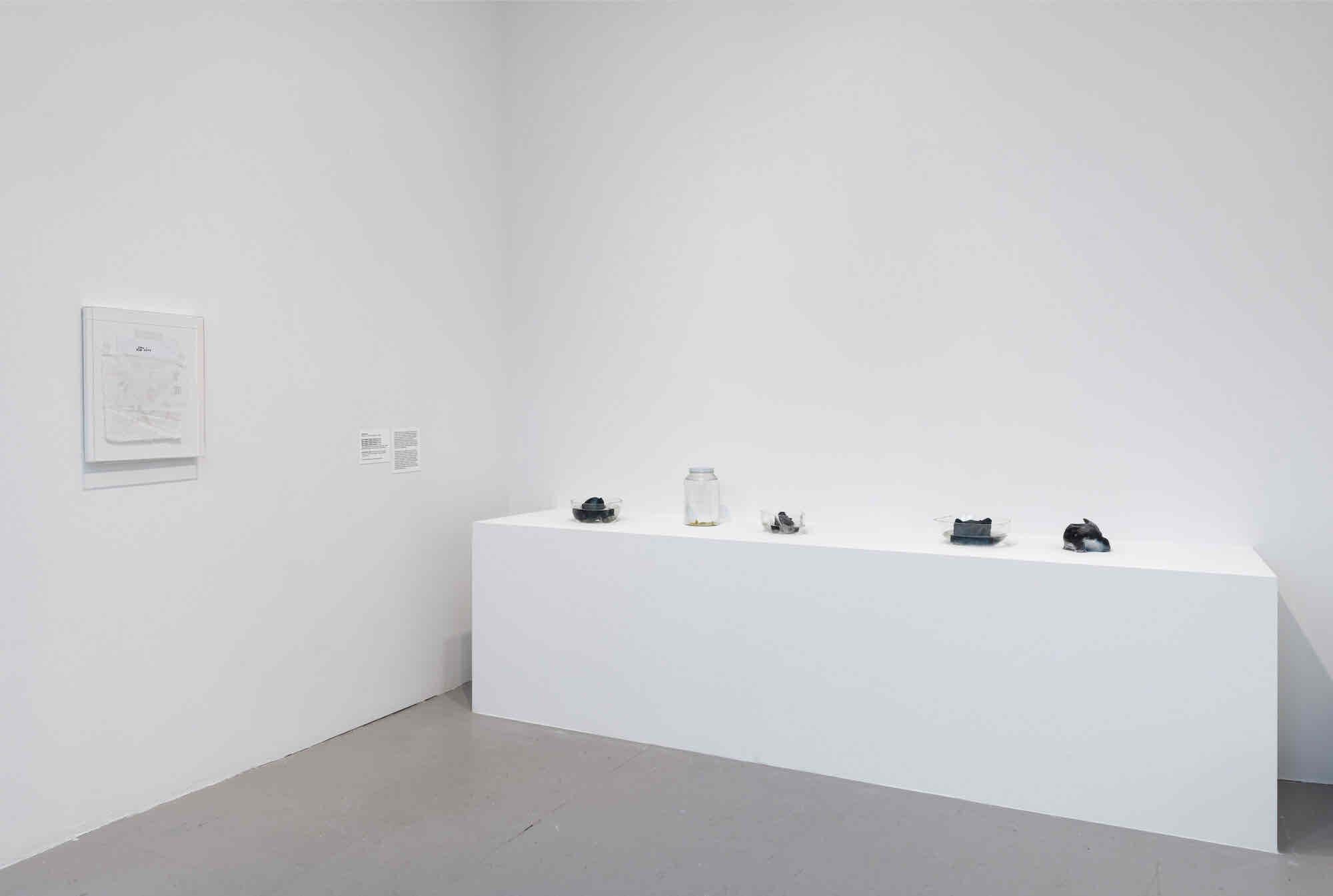
Installation view of Hard Ground, on view at MoMA PS1 from May 16 through October 14, 2024. Photo: Adam Reich
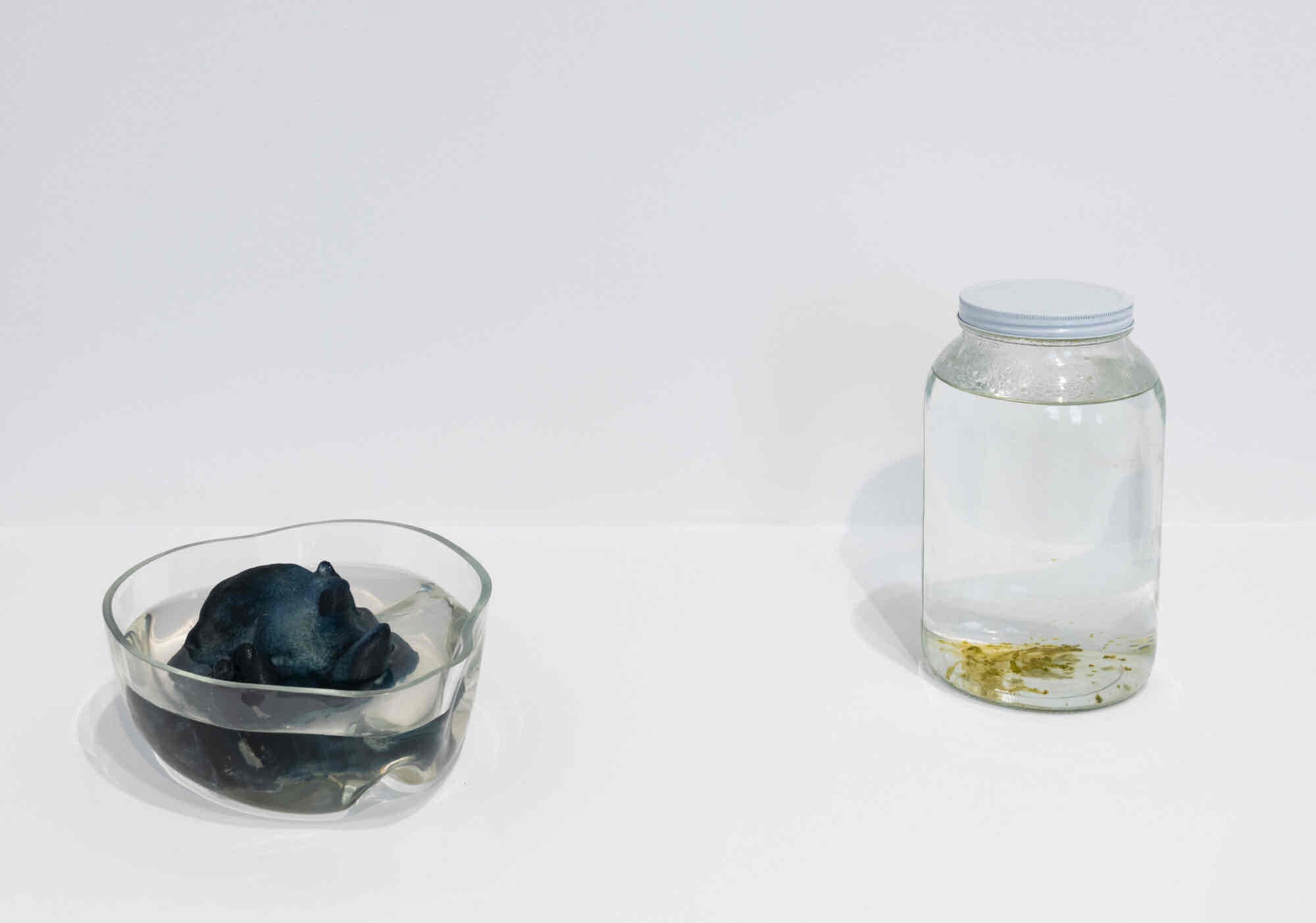
From left: Amina Ross. Body Vessel 4. 2024. Cast ground glass, blown glass, and rainwater. Amina Ross. Untitled. 2020. Glass jars and rain gutter water. Installation view of Hard Ground, on view at MoMA PS1 from May 16 through October 14, 2024. Photo: Adam Reich
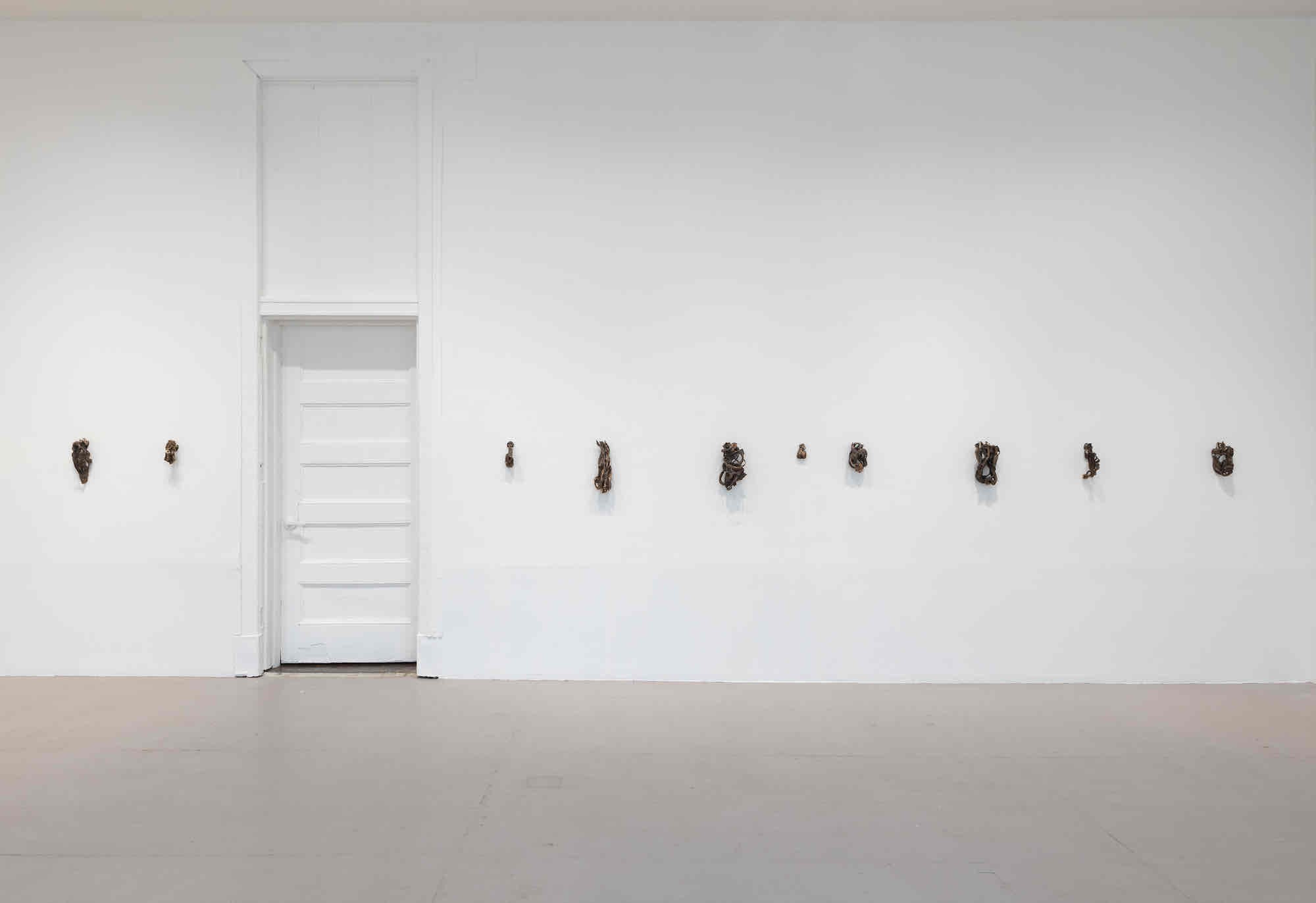
Maria Vmier. Objects of Request. 2022. Bronze and spandex. Installation view of Hard Ground, on view at MoMA PS1 from May 16 through October 14, 2024. Photo: Adam Reich
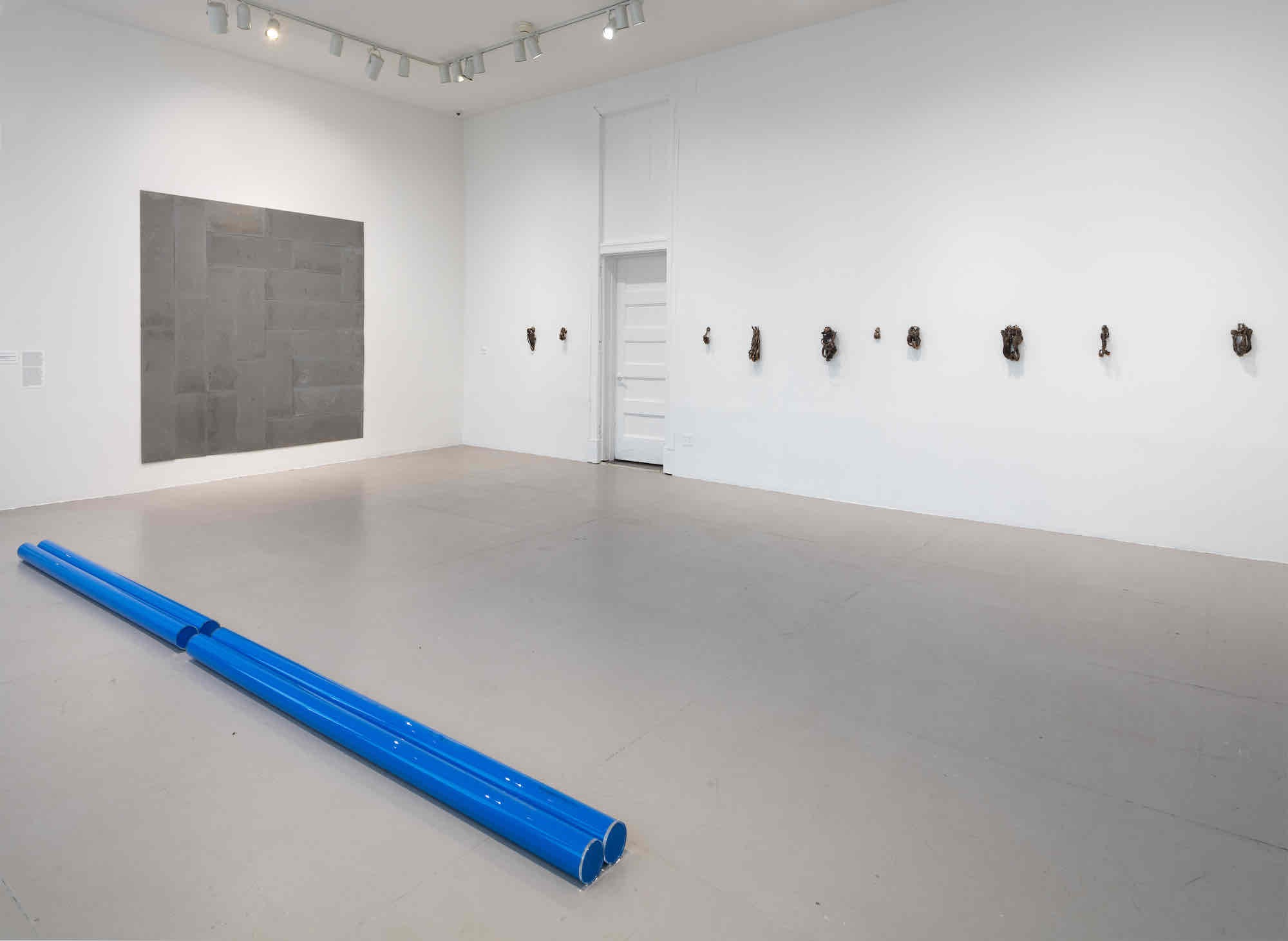
Installation view of Hard Ground, on view at MoMA PS1 from May 16 through October 14, 2024. Photo: Adam Reich
—This spring, MoMA PS1 will present Hard Ground, a group exhibition that features work by seven New York-based artists who employ processes of compression, distillation, and subtraction. On view beginning May 16, the presentation provides a snapshot of this underexplored but significant tendency in contemporary art and includes over 40 works whose materials range from limestone and bronze to a smelted Citi Bike. Diverging from a logic of assemblage and aggregation, these practices query how correlations between productivity, surface, and value are forged.
Many of the works amplify density, honing in on a core or distilling a single material. Matt Browning presents a new work made from boiled-down Dr. Pepper, as well as a series of sculptures that each emerge from a block of Douglas fir, whittled away to expose interlocking wooden forms. A former gardener and handyman at the legendary Long Island estate Grey Gardens, Jerry the Marble Faun creates sculptures through a similar process of removal, chiseling blocks of limestone—some sourced from demolition sites throughout the city—to unveil undulating forms.
Dora Budor’s Always Something to Remind Me (2023) was constituted by smelting one of New York’s ubiquitous Citi Bikes and using its alloy to make sixteen casts in a mold taken from avantgarde artist Elsa von Freytag-Loringhoven’s first readymade, Enduring Ornament (1913). Gianna Surangkanjanajai documents the patina of a New York rooftop in a series of Polaroids; other works by the artist in the exhibition include eight-foot-long plastic cylinders filled with gallons of paint, concentrated samples of pure color. Compression resurfaces in the work of Amina Ross, who presses ground glass into clay molds made from their body, which are then subjected to heat—a technique known as pâte de verre—and exhibited in pools of rainwater that evaporate over time. Considering scales from the molecular to the historical, Ross posits Blackness as a site of generative multiplicity in the face of objectification.
In other cases, reduction produces the trace of an image or action. Maria VMier’s gnarled bronze door knockers invite visitors to bang on the walls of the institution—generating a luster born from accumulated touch. The exhibition also includes frottages by Budor that result from rubbing sandpaper and Lexapro against the walls and floors of her studio as a form of automatic drawing. In a new large-scale work, Kern Samuel quilts together steel plates whose surfaces are etched with marks of their handling. Wash Rag (2018-2024), a print of Samuel’s face, is accompanied by a simple provocation: “Can I rub off?”
The title of the exhibition references printmaking techniques and geological processes. “Hard ground etching” involves scratching through a waxy layer and exposing an underlying metal plate to acid, wherein resulting grooves become the means of transmitting ink to paper. “Carbonate hardgrounds” are pieces of seafloor, lithified over time, whose fossils emerge when mineral deposits fill cavities left by decomposed organic matter—a primordial form of casting. Through the lens of artists working with the material culture of the evolving urban New York landscape, Hard Ground considers the ways in which removal can precipitate visibility, or give form to time.
Hard Ground is organized by Jody Graf, Assistant Curator, MoMA PS1.
Many of the works amplify density, honing in on a core or distilling a single material. Matt Browning presents a new work made from boiled-down Dr. Pepper, as well as a series of sculptures that each emerge from a block of Douglas fir, whittled away to expose interlocking wooden forms. A former gardener and handyman at the legendary Long Island estate Grey Gardens, Jerry the Marble Faun creates sculptures through a similar process of removal, chiseling blocks of limestone—some sourced from demolition sites throughout the city—to unveil undulating forms.
Dora Budor’s Always Something to Remind Me (2023) was constituted by smelting one of New York’s ubiquitous Citi Bikes and using its alloy to make sixteen casts in a mold taken from avantgarde artist Elsa von Freytag-Loringhoven’s first readymade, Enduring Ornament (1913). Gianna Surangkanjanajai documents the patina of a New York rooftop in a series of Polaroids; other works by the artist in the exhibition include eight-foot-long plastic cylinders filled with gallons of paint, concentrated samples of pure color. Compression resurfaces in the work of Amina Ross, who presses ground glass into clay molds made from their body, which are then subjected to heat—a technique known as pâte de verre—and exhibited in pools of rainwater that evaporate over time. Considering scales from the molecular to the historical, Ross posits Blackness as a site of generative multiplicity in the face of objectification.
In other cases, reduction produces the trace of an image or action. Maria VMier’s gnarled bronze door knockers invite visitors to bang on the walls of the institution—generating a luster born from accumulated touch. The exhibition also includes frottages by Budor that result from rubbing sandpaper and Lexapro against the walls and floors of her studio as a form of automatic drawing. In a new large-scale work, Kern Samuel quilts together steel plates whose surfaces are etched with marks of their handling. Wash Rag (2018-2024), a print of Samuel’s face, is accompanied by a simple provocation: “Can I rub off?”
The title of the exhibition references printmaking techniques and geological processes. “Hard ground etching” involves scratching through a waxy layer and exposing an underlying metal plate to acid, wherein resulting grooves become the means of transmitting ink to paper. “Carbonate hardgrounds” are pieces of seafloor, lithified over time, whose fossils emerge when mineral deposits fill cavities left by decomposed organic matter—a primordial form of casting. Through the lens of artists working with the material culture of the evolving urban New York landscape, Hard Ground considers the ways in which removal can precipitate visibility, or give form to time.
Hard Ground is organized by Jody Graf, Assistant Curator, MoMA PS1.
